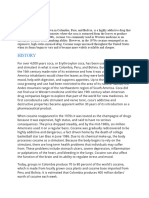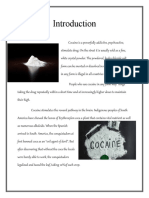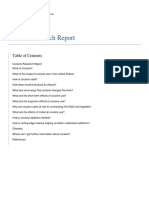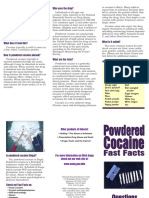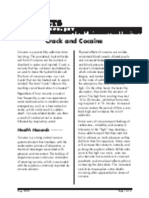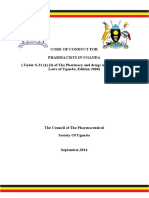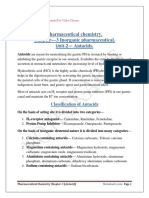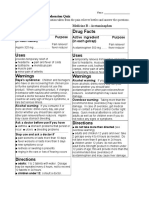0% found this document useful (0 votes)
132 views21 pagesExample of Use of Multimedia
Cocaine is a stimulant drug that comes from the coca plant. It was first isolated in 1859 and was popularized as a medical treatment in the 1880s. It can be snorted, smoked, or injected and causes short term effects like increased heart rate and euphoria. Long term effects include weight loss, paranoia, and addiction. Over 11,000 people abuse cocaine in Idaho and its use has declined among teens but remains prevalent.
Uploaded by
api-402781102Copyright
© © All Rights Reserved
We take content rights seriously. If you suspect this is your content, claim it here.
Available Formats
Download as PDF, TXT or read online on Scribd
0% found this document useful (0 votes)
132 views21 pagesExample of Use of Multimedia
Cocaine is a stimulant drug that comes from the coca plant. It was first isolated in 1859 and was popularized as a medical treatment in the 1880s. It can be snorted, smoked, or injected and causes short term effects like increased heart rate and euphoria. Long term effects include weight loss, paranoia, and addiction. Over 11,000 people abuse cocaine in Idaho and its use has declined among teens but remains prevalent.
Uploaded by
api-402781102Copyright
© © All Rights Reserved
We take content rights seriously. If you suspect this is your content, claim it here.
Available Formats
Download as PDF, TXT or read online on Scribd
/ 21











